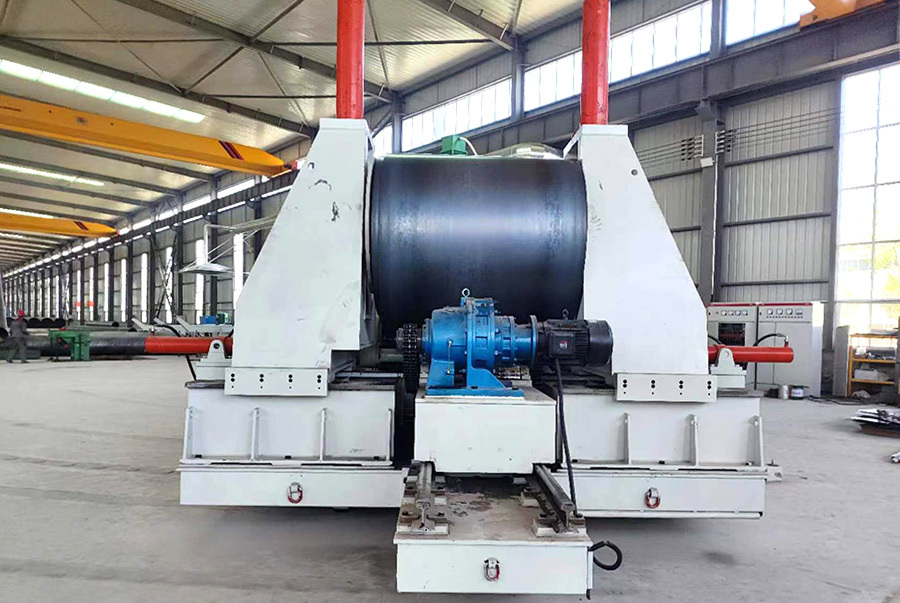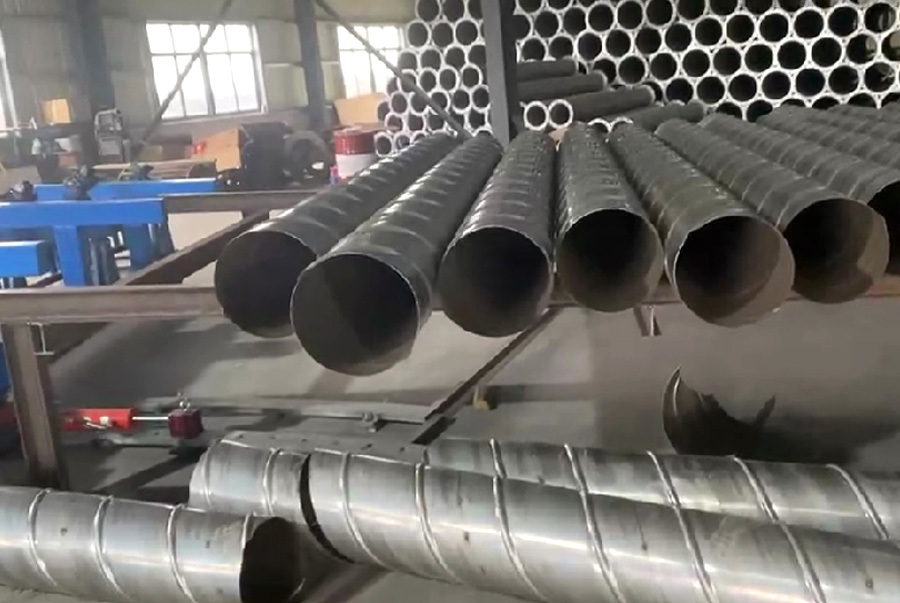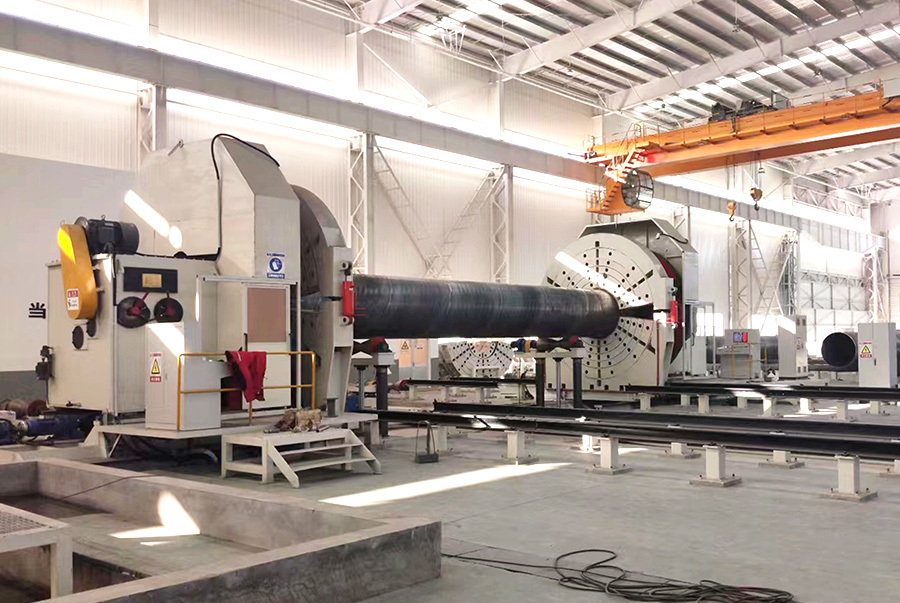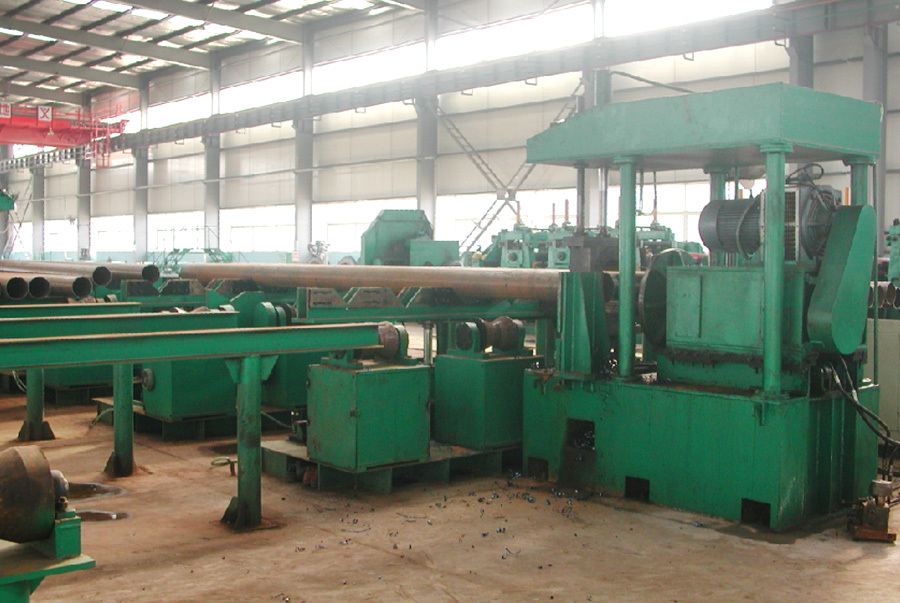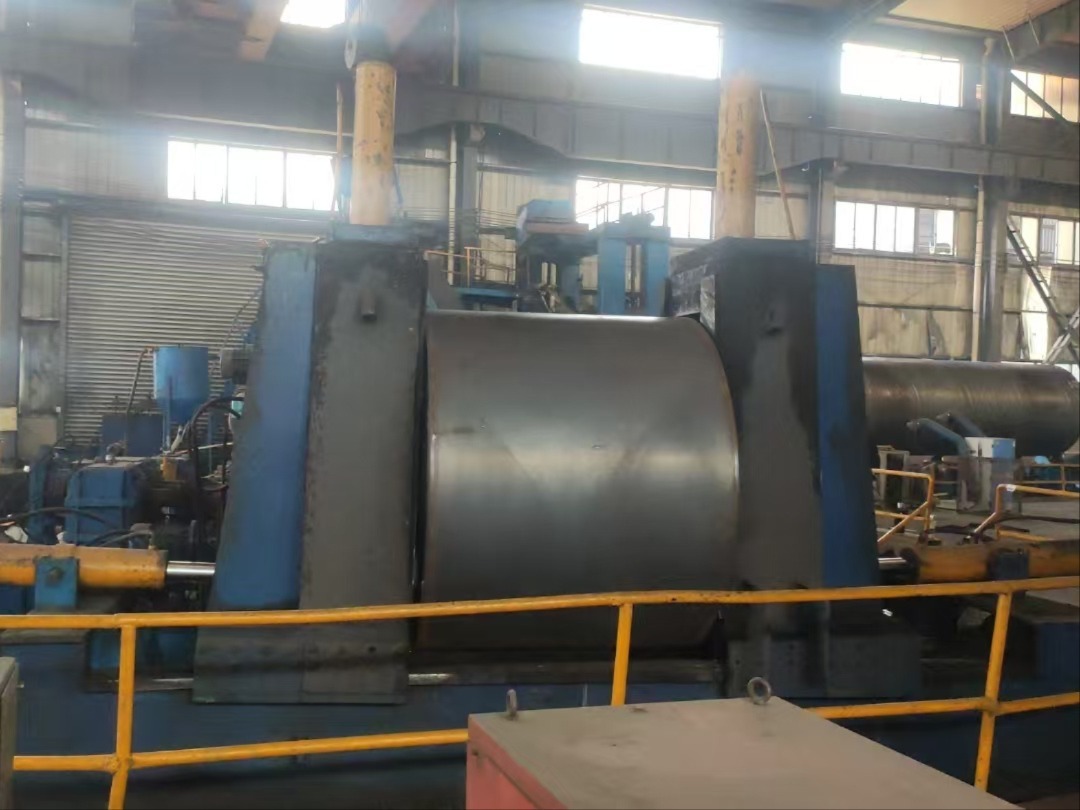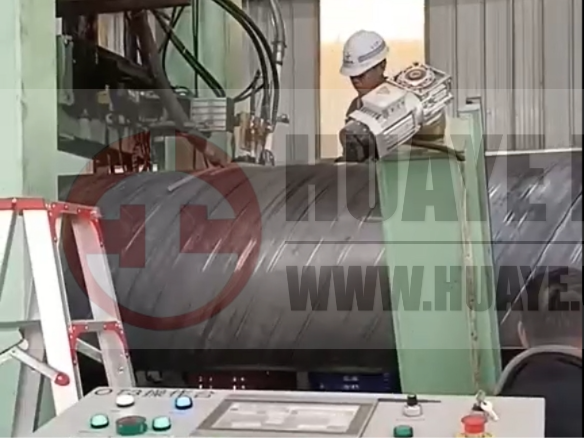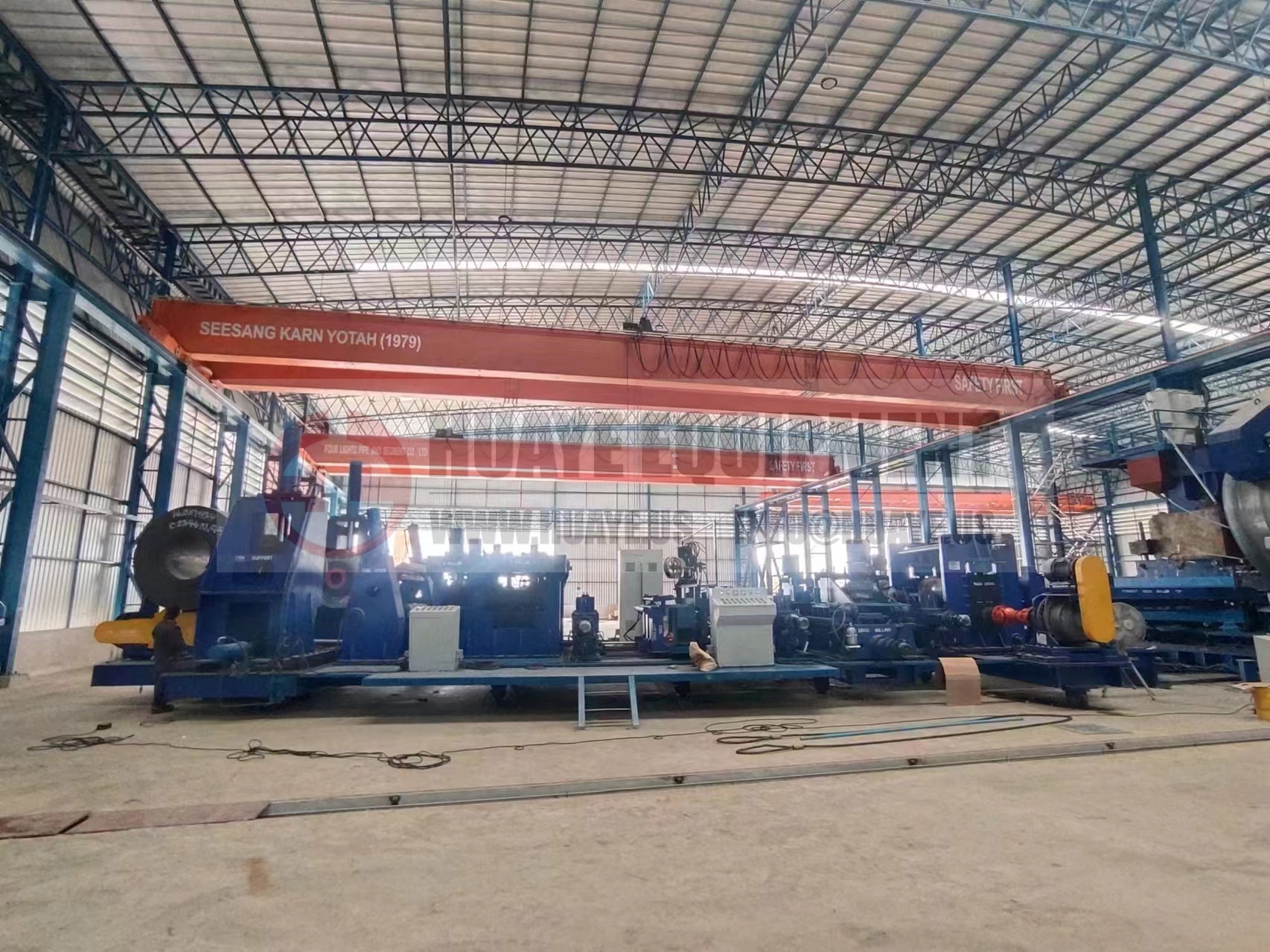Unlocking Efficiency: The Role of ERW Tube Mill Machines in Modern Manufacturing
11 Jul,2025
Unlocking Efficiency: The Role of ERW Tube Mill Machines in Modern Manufacturing
Manufacturing has undergone significant transformations over the years, with technological advancements driving efficiency and productivity. One of the most noteworthy innovations in this industry is the **Electric Resistance Welding (ERW) Tube Mill Machines**. These machines are vital in producing high-quality tubes
Unlocking Efficiency: The Role of ERW Tube Mill Machines in Modern Manufacturing
Manufacturing has undergone significant transformations over the years, with technological advancements driving efficiency and productivity. One of the most noteworthy innovations in this industry is the **Electric Resistance Welding (ERW) Tube Mill Machines**. These machines are vital in producing high-quality tubes and pipes, which are essential components across various industries. In this article, we will discuss the **role of ERW tube mill machines**, highlighting their importance in modern manufacturing processes.
Table of Contents
- What Are ERW Tube Mill Machines?
- How ERW Tube Mills Work
- Benefits of ERW Tube Mill Machines
- Applications of ERW Tube Mill Machines
- Choosing the Right ERW Tube Mill Machine
- Maintenance and Care for ERW Tube Mill Machines
- The Future of ERW Tube Mill Machines
- Conclusion
- FAQs
What Are ERW Tube Mill Machines?
**ERW tube mill machines**, also known as Electric Resistance Welding tube mills, are specialized equipment designed to manufacture tubes and pipes from steel coils. The process involves forming flat strips of steel into a cylindrical shape and welding the edges together using electric resistance. This innovative technology produces strong, durable, and precise tubes that meet various industrial requirements.
The versatility of ERW tube mills allows them to create a wide range of tube sizes and thicknesses, making them suitable for diverse applications including automotive, construction, and oil and gas industries. The machines are engineered for high-speed production, ensuring that manufacturers can meet the growing demand for quality tubes without compromising efficiency.
How ERW Tube Mills Work
The operation of **ERW tube mill machines** can be broken down into several key steps:
1. Coil Preparation
The process begins with the selection of the appropriate steel coil. The coil is uncoiled and fed into the mill, where it undergoes a series of processes to prepare it for shaping.
2. Forming
Once the coil is prepared, it is shaped into a tubular form. This is achieved through a series of rollers that gradually bend the flat strip of steel into a cylindrical shape. The precision of the rollers ensures that the tube's dimensions are accurate and consistent.
3. Welding
The most critical step in the ERW process is welding. As the edges of the formed tube come together, electric resistance heating is applied to fuse them. The heat generated by the electrical resistance effectively melts the edges of the steel, creating a strong bond without the need for additional filler materials.
4. Sizing and Cutting
After welding, the tube is sized and cut to the desired length. This step ensures that the final product meets specific dimensional requirements, which are essential for various applications.
5. Inspection and Quality Control
Finally, the produced tubes undergo rigorous inspection and quality control tests to ensure they meet industry standards. This may include checking for defects, measuring wall thickness, and assessing the overall quality of the weld.
Benefits of ERW Tube Mill Machines
Investing in **ERW tube mill machines** offers numerous benefits for manufacturers:
1. High Efficiency and Speed
ERW tube mills are designed for high-speed production, allowing manufacturers to produce large volumes of tubes in a short amount of time. This efficiency translates to lower production costs and increased profitability.
2. Cost-Effective Production
The process of electric resistance welding is generally more cost-effective compared to traditional welding methods, as it requires less energy and eliminates the need for filler materials. Additionally, the ability to use thinner materials without compromising strength reduces overall material costs.
3. Versatility
ERW tube mills can produce a wide variety of tube sizes, shapes, and wall thicknesses, making them suitable for multiple applications across various industries. This versatility allows manufacturers to cater to diverse customer needs.
4. Enhanced Quality
The precision engineering of ERW tube mills ensures that the produced tubes have consistent dimensions, high strength, and flawless welds. This quality is crucial for applications where safety and durability are paramount, such as in construction and automotive sectors.
5. Environmentally Friendly
Utilizing **ERW tube mill machines** contributes to a more sustainable manufacturing process. The energy-efficient welding method reduces waste and emissions, making it a more environmentally friendly option compared to traditional tube manufacturing techniques.
Applications of ERW Tube Mill Machines
The versatility of ERW tube mills makes them applicable in numerous industries:
1. Automotive Industry
In the automotive sector, ERW tubes are used for exhaust systems, chassis components, and fuel lines. The strength and reliability of these tubes are essential for ensuring vehicle safety and performance.
2. Construction Industry
ERW tubes play a critical role in the construction industry, being used for scaffolding, structural support, and various other applications. Their lightweight yet strong nature makes them an ideal choice for construction projects.
3. Oil and Gas Industry
The oil and gas industry relies on ERW tubes for pipelines, drill casing, and other essential components. The high-quality welds and durability of ERW tubes make them suitable for high-pressure applications.
4. HVAC Systems
Heating, ventilation, and air conditioning (HVAC) systems utilize ERW tubes for ductwork and piping. The excellent thermal conductivity of these tubes ensures efficient heat transfer in HVAC applications.
5. Furniture and Home Decor
ERW tubes are increasingly being utilized in furniture design and home decor, providing a modern and industrial aesthetic. Their strength and versatility allow for creative and durable furniture solutions.
Choosing the Right ERW Tube Mill Machine
Selecting the appropriate ERW tube mill machine is crucial for maximizing production efficiency. Here are some factors to consider:
1. Production Capacity
Assess your production requirements to determine the necessary capacity of the tube mill. Consider factors such as the volume of tubes needed and the desired production speed.
2. Material Compatibility
Ensure that the selected ERW tube mill can accommodate the types of materials you plan to use. Different machines may be optimized for specific steel grades or thicknesses.
3. Machine Features
Evaluate the features of various ERW tube mills, such as automation capabilities, size adjustments, and control systems. Advanced features can enhance productivity and ease of operation.
4. Manufacturer Reputation
Research the reputation of the manufacturer to ensure you are investing in a reliable and high-quality machine. Customer reviews, testimonials, and industry certifications can provide valuable insights.
Maintenance and Care for ERW Tube Mill Machines
Regular maintenance is essential to ensure the longevity and efficiency of ERW tube mill machines. Here are some key maintenance tips:
1. Routine Inspections
Conduct regular inspections of the machine’s components, including rollers, welding equipment, and control systems. Early detection of wear and tear can prevent costly breakdowns.
2. Lubrication
Proper lubrication of moving parts is critical for smooth operation. Follow the manufacturer’s guidelines for lubrication schedules and types of lubricants to use.
3. Cleaning
Keep the machine clean by removing debris, dust, and metal shavings after each production run. A clean machine operates more efficiently and reduces the risk of contamination.
4. Operator Training
Ensure that operators are adequately trained in the use and maintenance of the ERW tube mill. Proper training can enhance safety and efficiency, reducing the likelihood of errors.
The Future of ERW Tube Mill Machines
As technology continues to evolve, the future of **ERW tube mill machines** looks promising. Innovations in automation, machine learning, and artificial intelligence are expected to enhance the capabilities of these machines, leading to even higher efficiencies and improved product quality.
Furthermore, the growing emphasis on sustainability is pushing manufacturers to adopt more eco-friendly practices. ERW tube mills will likely evolve to integrate renewable energy sources and environmentally friendly materials, paving the way for a greener manufacturing landscape.
Conclusion
In conclusion, **ERW tube mill machines** are integral to modern manufacturing, providing efficiency, versatility, and quality in tube production. Their unique welding process and ability to produce various tube sizes make them indispensable across multiple industries. As technology advances, the potential for these machines to further enhance manufacturing efficiency is vast, ensuring that they will continue to play a vital role in the future of the manufacturing sector.
FAQs
1. What is the primary advantage of using ERW tube mill machines?
The primary advantage of ERW tube mill machines is their ability to produce high-quality tubes quickly and cost-effectively, making them ideal for various industrial applications.
2. What types of materials can be used with ERW tube mills?
ERW tube mills can work with various materials, primarily different grades of steel, including carbon steel and stainless steel.
3. How does the welding process in ERW tube mills differ from other welding methods?
ERW tube mills use electric resistance welding, which generates heat through electrical resistance to fuse the edges of the tube without needing filler materials, resulting in a strong and clean weld.
4. What maintenance is required for ERW tube mill machines?
Regular maintenance for ERW tube mill machines includes routine inspections, lubrication of moving parts, cleaning, and proper operator training to ensure efficient operation.
5. Can ERW tube mills produce custom-sized tubes?
Yes, ERW tube mills can be adjusted to produce custom-sized tubes based on specific requirements, providing flexibility for manufacturers to meet diverse customer needs.
Key words:
All
- All
- Product Management
- News
- Introduction
- Enterprise outlets
- FAQ
- Enterprise Video
- Enterprise Atlas
Related News
Essential Insights into Pipe Prepping Machines: A Comprehensive Guide
In the manufacturing and processing machinery sector, particularly in the realm of electric tools, the pipe prepping machine stands out as a crucial tool for ensuring high-quality pipe preparation. These machines are designed to prepare pipe edges for welding and other applications, making them a vital component in various industrial processes. Understanding the functionality and advantages of pip
2025-12-08
How to Ensure Your Pipe Welding Equipment Meets Industry Standards
How to Ensure Your Pipe Welding Equipment Meets Industry Standards
Table of Contents
Understanding Industry Standards for Pipe Welding Equipment
Importance of Compliance with Industry Standards
Key Components of Pipe Welding Equipment
Regulatory Bodies and Standards Governing Pipe Welding
Regular Maintenance and Inspection of Welding Equipment
Training and Certification fo
2025-12-03
Essential Guide to Pipe Welding Equipment for Efficient Manufacturing
Pipe welding equipment plays a crucial role in various manufacturing processes, particularly in industries that involve metal fabrication and assembly. Whether you're working with steel, aluminum, or other metals, understanding the different types of equipment and their functionalities can enhance efficiency and quality.
One of the primary components of pipe welding equipment is the welding machin
2025-11-28







